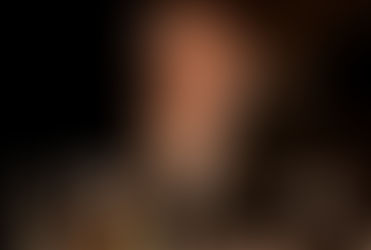Dublin Fringe Festival 2018: Madhouse
- Chris ORourke
- Sep 14, 2018
- 2 min read

***
Ma’s House
“There isn't a person in Ireland who’s more than a first cousin away from genuine psychiatric illness.” So says comedian Tommy Tiernan, and on the evidence of PJ Gallagher and Una McKevitt’s “Madhouse,” he might well have a point. Playing with the notion of normalcy, "Madhouse" makes lunatics of us all. Yet, like the incomparable Evel Knievel, “Madhouse,” only appears reckless and exciting. For if it yields a few wild moments and a generous amount of laughter, it never quite makes the jump.
In “Madhouse” the lunatics have most certainly taken over the asylum. The asylum in this instance being Gallagher’s childhood home in Clontarf during the late 1970s and early 1980s. Here his altruistic mother, a nurse with a soft spot for the touched, runs their household like a mental health pound for those afflicted with mental health issues. Of course then they were just characters who were mental. If “Madhouse” played with this central idea more it might have yielded much. Instead it drifts off into a lacklustre coming-of-age tale that slips uneasily into being a comedy routine with theatrical dressing.
Under Cathal Cleary’s direction, “Madhouse” delivers a memory lane monologue composed of loosely interwoven reminiscences, most of which are delivered directly to the audience. A series of loosely interrelated incidents that jump back and forth through the years, with a tagged on theatrical ending, “Madhouse” sees Bobby, superbly delivered by Barry Kinsella, regaling with tales of first loves, quirky madmen, and functionally dysfunctional parents. Eyes almost permanently fixed on the audience, Kinsella spends long periods sharing memories as he sits counting cash or standing about, with hardly any eye contact with his remembered mother, a delightfully understated performance by Katherine Lynch.
Theatrically, “Madhouse” bares more than a passing resemblance to Hugh Leonard’s Da, with the youthful Barry negotiating a troubled relationship with his mother steeped in innocence and nostalgia. More mildly amusing than outright funny, the audience’s claim to sanity is cleverly challenged by Cyle Conley’s Spanish speaking gorilla. A clever ploy that serves to highlight what might have been. But such possibilities end up playing second fiddle to Barry’s irrepressible Ma, who provides the central focus, replete with her Dublin Mammyisms and paradoxical sayings. Even if these are often smartly realised, their relationships isn’t always as funny or as compelling as it might have been.
With few genuine highs or lows, its steady as she goes delivery has “Madhouse” feeling like a self-aware, observational comedy monologue with some delightful theatrical intrusions. Yet if Madhouse” is never quite as mad as it promises to be, it has enough charm and warmth, along with lashings of 70’s nostalgia, to make for a light hearted and enjoyable experience.
“Madhouse” by PJ Gallagher and Una McKevitt, runs as part of Dublin Fringe Festival 2018 at the Peacock Stage of The Abbey Theatre until September 22.
For more information, visit The Abbey Theatre or Dublin Fringe Festival 2018





















